Choosing between Shopify and Etsy can shape your entrepreneurial journey. Shopify empowers you to build a custom storefront with unlimited growth potential, while Etsy connects you to a vibrant artisan community. Embrace your vision—let passion guide your choice!
Shopify vs Etsy: Which Platform is Best?
In the dynamic world of e-commerce, the dream of transforming your passion into a thriving online business is more attainable than ever. With platforms like Shopify and Etsy leading the charge, aspiring entrepreneurs are faced with an exciting yet crucial decision: which platform is best suited to bring their creative visions to life? Shopify, known for its robust customization options and scalability, offers a powerful solution for those looking to build a standalone brand. On the other hand, Etsy shines as a vibrant marketplace that connects artisans and crafters with a community eager for unique, handmade treasures. In this article, we will delve deep into the strengths and weaknesses of both platforms, empowering you with the knowledge to choose the right path for your entrepreneurial journey. Whether you’re a seasoned seller or just taking your first steps, understanding the nuances of Shopify and Etsy will inspire you to harness your creativity and turn your dreams into a successful reality. Let’s explore which platform can best elevate your business and help you shine in the vast e-commerce landscape!
Choosing the Right Platform for Your Creative Business
When deciding between Shopify and Etsy for your creative business, it’s essential to consider the unique strengths of each platform. Both have proven to be popular among artisans and entrepreneurs, but they serve different needs and business models. Understanding these differences can help you make an informed decision that aligns with your brand vision and goals.
Shopify is an excellent choice for those looking to build a comprehensive e-commerce store. It offers a wide range of customizable templates, which allow you to create a unique online presence that reflects your brand identity. Here are some key features that make Shopify stand out:
- Full control: You have complete control over your store’s design and functionality.
- Scalability: Ideal for businesses looking to grow; Shopify can handle higher volumes of traffic and transactions.
- Integrated payment options: Multiple payment gateways provide flexibility for both you and your customers.
- Robust SEO features: Optimization tools to help your store rank higher in search results.
On the other hand, Etsy caters specifically to creators and crafters, making it the go-to platform for handmade and vintage items. If your products align with the artisanal vibe, Etsy could be the perfect fit. Consider these benefits:
- Built-in audience: Etsy has a large, dedicated customer base specifically looking for unique, creative products.
- Low initial costs: Listing fees are relatively low, making it accessible for new entrepreneurs.
- Community support: Engage with a community of fellow makers and gain insights through forums and resources.
- Simple setup: Quick and easy to set up and start selling your products.
To give you a clearer comparison, consider the following table that highlights the main differences:
| Feature | Shopify | Etsy |
|---|---|---|
| Target Audience | Broader e-commerce market | Artisans and vintage lovers |
| Control Over Branding | High | Limited |
| Fees | Monthly subscription + transaction fees | Listing fees + transaction fees |
| SEO Capabilities | Advanced features | Basic options |
| Scalability | Excellent | Limited |
Ultimately, the choice between Shopify and Etsy depends on your business goals, product type, and desired level of control. If you envision a robust, branded online store with the potential for growth, Shopify may be your best bet. Conversely, if you want to tap into a niche market with less overhead, Etsy could provide the perfect platform to showcase your creative talents.
Before making a decision, take the time to assess your long-term vision and consider where your products will thrive. With the right platform, you can elevate your creative business to new heights and reach customers who appreciate your unique offerings.
Understanding the Unique Features of Shopify
When exploring e-commerce solutions, Shopify stands out due to its robust feature set tailored for entrepreneurs and businesses of all sizes. This platform is designed with versatility in mind, allowing users to create stunning online stores without needing extensive technical knowledge.
- User-Friendly Interface: Shopify’s intuitive dashboard enables users to easily navigate through settings, product listings, and orders. This simplicity is particularly beneficial for those new to e-commerce.
- Customizable Templates: With a wide range of professionally designed themes, Shopify allows businesses to personalize their stores to reflect their brand identity. This customization ensures a unique shopping experience for customers.
- Integrated Payment Solutions: Shopify supports multiple payment gateways, including its own Shopify Payments, making transactions seamless and secure for customers.
- Scalability: Whether you’re a startup or a growing enterprise, Shopify can accommodate your needs. As your business expands, you can easily upgrade your plan to access additional features and resources.
- Comprehensive App Ecosystem: The Shopify App Store boasts thousands of applications, allowing merchants to enhance functionality with tools for marketing, inventory management, and customer service.
Additionally, Shopify provides excellent support and resources for its users. With 24/7 customer assistance and a wealth of documentation, you’ll never feel alone on your e-commerce journey. This level of support is crucial for businesses looking to scale quickly and efficiently.
Another standout feature is Shopify’s built-in SEO capabilities. This functionality empowers users to optimize their store for search engines, driving organic traffic and enhancing visibility. By leveraging these tools, businesses can attract more customers without relying solely on paid advertising.
| Feature | Shopify | Etsy |
|---|---|---|
| Ease of Use | High | Moderate |
| Customization | Extensive | Limited |
| Scalability | Excellent | Moderate |
| Payment Options | Variety | Limited |
The platform’s extensive reporting and analytics tools also empower businesses to make data-driven decisions, ultimately leading to increased sales and customer satisfaction. By tracking performance metrics, users can identify trends and adjust their strategies accordingly.
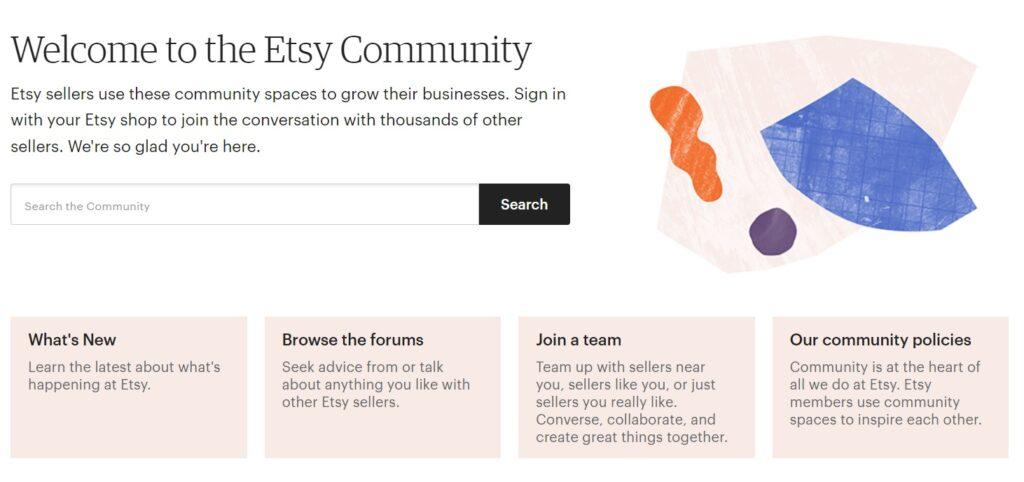
Etsy’s Community and Market Reach Explained
Etsy is more than just an online marketplace; it’s a thriving community where creativity and entrepreneurship intersect. With millions of active buyers and sellers, the platform fosters a sense of belonging among artisans, crafters, and small business owners. This unique environment encourages collaboration, innovation, and support, setting Etsy apart from more generalized e-commerce platforms.
One of the standout features of Etsy is its dedicated audience. Consumers flock to the platform seeking unique, handmade, and vintage items that cannot be found elsewhere. This niche focus creates a high demand for products that tell a story, allowing sellers to connect with customers on a more personal level. The emotional appeal of purchasing one-of-a-kind creations adds to the overall shopping experience, making it more meaningful than a typical transaction.
The strength of Etsy’s community is evident in its robust support systems for sellers. From forums to seller guides, Etsy offers resources that help small business owners thrive. This not only enhances sellers’ skills in marketing and customer service but also creates an environment where they can share tips and tricks with one another. The result is a vibrant marketplace where everyone is invested in each other’s success.
Etsy’s alignment with social and environmental values also plays a crucial role in its appeal. Many buyers are drawn to the platform because they want to support small businesses and sustainable practices. As a seller, you can leverage this sentiment by highlighting the ethical aspects of your products, whether it’s using eco-friendly materials or supporting fair trade practices. This alignment can significantly boost your visibility and customer loyalty.
| Community Features | Benefits |
|---|---|
| Forums and Groups | Connect with fellow sellers for advice and support. |
| Seller Education | Access to workshops and resources to improve business skills. |
| Promotion Opportunities | Participate in Etsy-wide events and promotions to increase visibility. |
When comparing Etsy to other platforms, it’s essential to consider its market reach. Etsy has cultivated a diverse customer base that spans across various demographics and interests. Its international presence allows sellers to tap into global markets, giving them the opportunity to reach customers far beyond their local communities. This global outreach can significantly increase sales potential and brand awareness.
Ultimately, choosing Etsy means joining a community that celebrates creativity while providing a platform for growth and success. For sellers who prioritize connection, storytelling, and a unique audience, Etsy offers an unparalleled experience that few e-commerce platforms can match. By harnessing the power of this vibrant community, you can turn your passion into a profitable business.
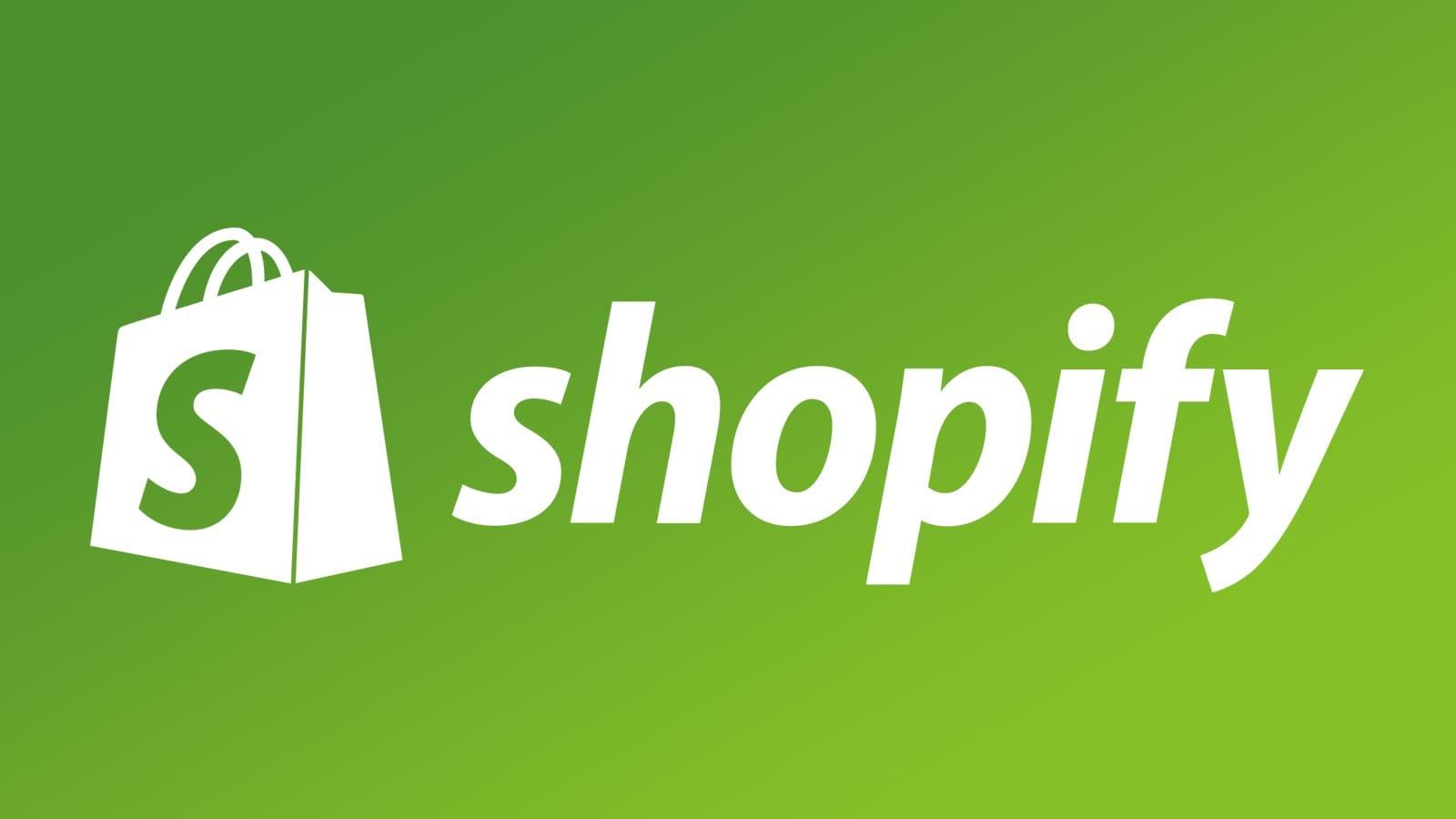
Evaluating Costs: Shopify vs Etsy
When it comes to choosing between Shopify and Etsy, evaluating costs is a crucial factor that can significantly impact your business decisions. Both platforms offer unique pricing structures tailored to different types of sellers, making it essential to analyze what fits your needs best.
Shopify operates on a subscription model with several tiers, which allows for scalability as your business grows. The basic plan starts at around $39 per month and includes essential features like a custom online store, unlimited product listings, and 24/7 customer support. However, as you move up the pricing ladder, the costs increase:
| Plan Type | Monthly Cost | Key Features |
|---|---|---|
| Basic | $39 | Online store, unlimited products |
| Shopify | $105 | Advanced reports, gift cards |
| Advanced | $399 | Advanced reporting, dedicated support |
In addition to the monthly fees, Shopify charges transaction fees that can range from 2.9% + 30¢ per transaction to lower rates depending on your plan. These fees can add up quickly, especially for small businesses just starting out.
On the other hand, Etsy offers a more straightforward fee structure, which can be particularly appealing for hobbyists and small-scale sellers. Listing an item costs just $0.20, and the platform takes a 5% transaction fee on each sale. This can be beneficial for those who want to test the waters without incurring large upfront costs. However, you might find additional fees for payment processing, which can vary based on the seller’s location.
- Pros of Etsy: Low initial investment, ideal for crafters and artists.
- Cons of Etsy: Limited customization, reliance on Etsy’s audience.
- Pros of Shopify: Full control over branding, scalable for growth.
- Cons of Shopify: Higher upfront costs, more complex setup.
Ultimately, the choice between Shopify and Etsy boils down to your business model and long-term goals. If you envision scaling your business into a full-fledged eCommerce site, Shopify’s robust features and extensive customization options may justify the higher costs. Conversely, if you prefer a more hands-off approach with lower financial risk, Etsy’s lower fees could be the ideal starting point for your creative endeavors.

User Experience: Which Platform Offers More Ease?
When considering the ease of use for both Shopify and Etsy, it’s essential to look beyond just the user interface. The overall experience encompasses setup, navigation, customization, and customer interaction. Each platform has its strengths and weaknesses that cater to different types of sellers.
Setup and Onboarding
Shopify provides a structured onboarding process that guides users through setting up their online store. The step-by-step wizard simplifies the complexities of e-commerce, making it beginner-friendly. Users can:
- Select a plan that suits their business needs.
- Choose from a variety of templates to quickly design their store.
- Integrate payment gateways effortlessly.
In contrast, Etsy targets artisans and crafters, making it easy for those with creative products to start selling. The process is streamlined, allowing users to set up a shop in a matter of minutes, with minimal technical knowledge required.
Navigation and User Interface
Once established, the user interface plays a pivotal role in the ongoing experience. Shopify’s dashboard is robust, featuring detailed analytics and management tools. This allows sellers to:
- Track sales and customer behavior.
- Manage inventory and orders effortlessly.
- Access a wide range of apps for enhanced functionality.
Etsy, on the other hand, offers a simpler, more streamlined interface that caters to creative sellers. The focus is on showcasing products, which is ideal for attracting buyers. However, it may lack some advanced features that Shopify provides for larger-scale operations.
Customization and Flexibility
Shopify shines brightly when it comes to customization options. Users can choose from numerous themes and plugins to create a unique shopping experience. This level of flexibility supports ambitious entrepreneurs who want to scale their businesses. In contrast, Etsy’s customization options are limited, which may appeal to those who prefer simplicity and don’t want the hassle of extensive customization.
Customer Interaction and Support
Providing excellent customer service is crucial for any seller. Shopify offers 24/7 support via multiple channels, ensuring that help is always available when needed. This is particularly advantageous for businesses operating in different time zones or requiring immediate assistance. Etsy also provides customer support but may not be as responsive or comprehensive as Shopify’s offerings.
Conclusion
Ultimately, the choice between Shopify and Etsy boils down to individual needs and business goals. Shopify offers a more comprehensive platform for those seeking scalability and advanced features, while Etsy provides a quick and easy way for artisans to connect with buyers in a niche market. Understanding these nuances in user experience can guide sellers in making an informed decision that aligns with their vision.
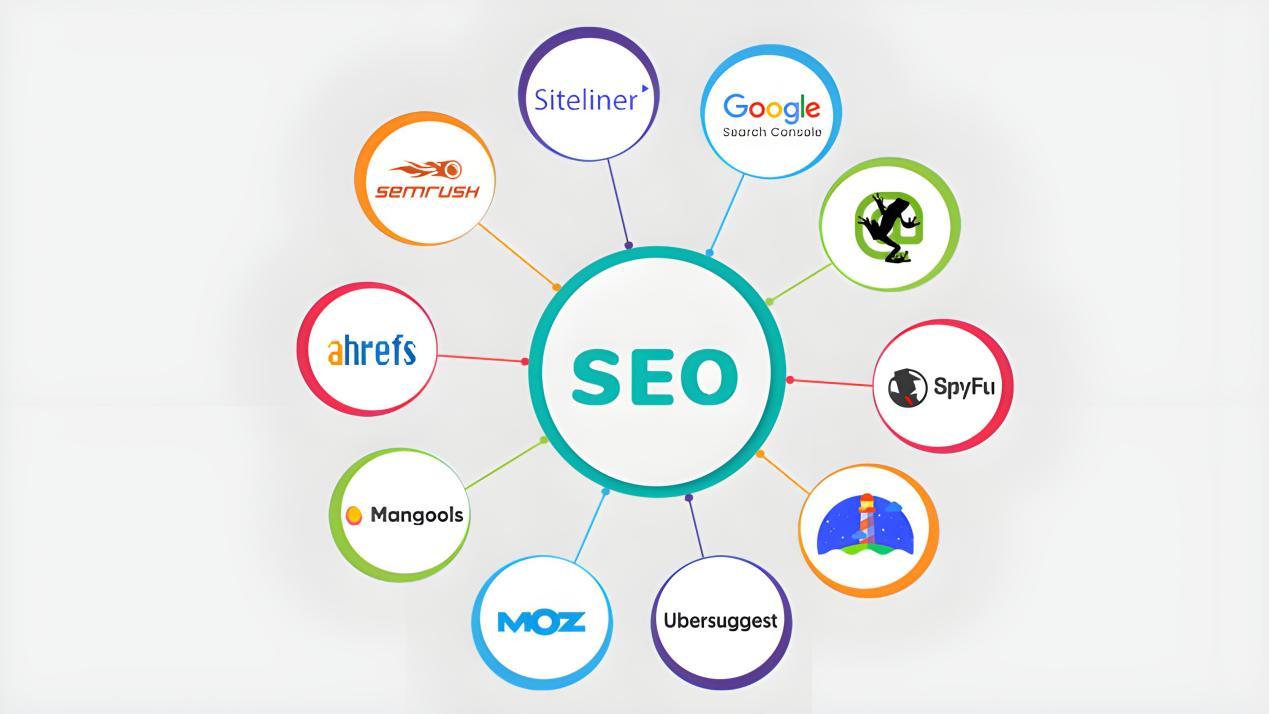
SEO and Marketing Tools: Boosting Your Visibility
In the competitive world of online selling, leveraging the right SEO and marketing tools can make all the difference in enhancing your store’s visibility. When evaluating platforms like Shopify and Etsy, it’s essential to consider how these tools can optimize your presence and help your business thrive.
Shopify offers a robust suite of SEO tools designed to improve your site’s rankings on search engines. With built-in features such as customizable title tags, meta descriptions, and an easy-to-navigate URL structure, Shopify empowers you to create an SEO-friendly store that attracts organic traffic. Furthermore, it supports various apps like SEO Manager and Plug in SEO, which can help streamline your optimization efforts.
On the other hand, Etsy provides a unique approach to SEO, focusing on the marketplace’s internal search engine. Sellers can optimize their listings using keywords effectively, allowing them to appear in Etsy’s search results. With tools like EtsyRank and Marmalead, you can identify trending keywords and track how your listings perform against competitors. These insights can guide your content strategy and help you tailor your products to meet customer demand.
Both platforms also offer extensive marketing tools that can amplify your reach:
- Email Marketing: Shopify’s integration with platforms like Mailchimp allows you to run targeted campaigns to your customer list, while Etsy provides tools for direct communication with buyers.
- Social Media Integration: Shopify enables seamless integration with various social media channels, enhancing your promotional efforts, whereas Etsy provides features to easily share listings across social platforms.
- Analytics: Shopify’s analytic tools give you a comprehensive view of your traffic and sales, while Etsy’s dashboard focuses on shop performance metrics to help you refine your strategy.
To help visualize the differences in SEO capabilities, here’s a brief comparison:
| Feature | Shopify | Etsy |
|---|---|---|
| Custom Domain | Yes | No |
| Custom SEO Settings | Yes | Limited |
| Keyword Tools | Third-Party Apps | Built-in Tools |
| Social Media Integration | Extensive | Basic |
Ultimately, the choice between Shopify and Etsy boils down to your business goals and the level of control you wish to have over your SEO and marketing efforts. By utilizing the right tools, you can significantly enhance your online visibility and set your shop up for lasting success.
Customization Options: Tailoring Your Store to Your Brand
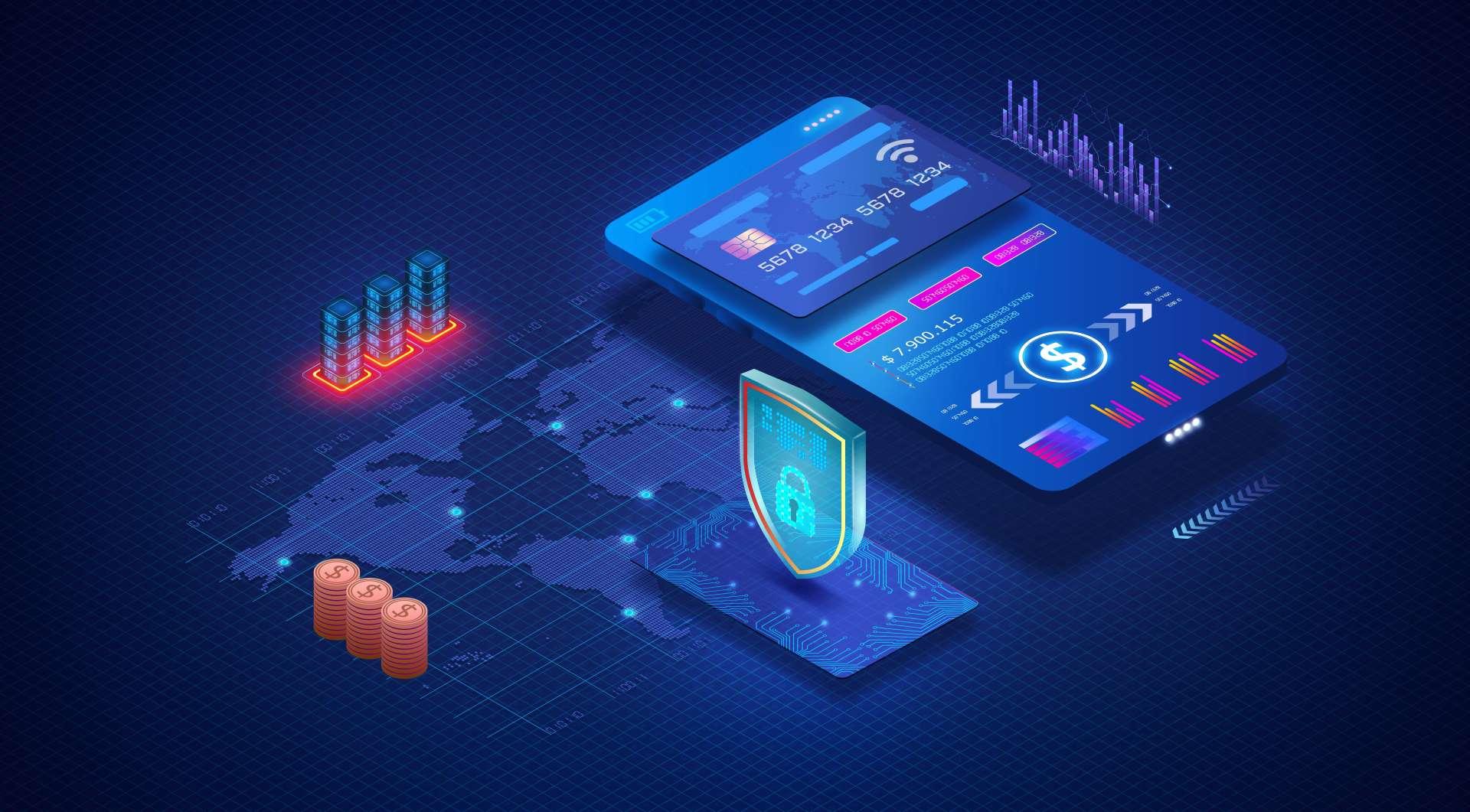
Payment Processing and Transaction Fees Comparison
When choosing between Shopify and Etsy, understanding the intricacies of payment processing and transaction fees is crucial for any seller aiming to maximize profits. Both platforms have distinct approaches that cater to different business models, and it’s essential to analyze these differences to find the best fit for your needs.
Shopify offers a streamlined payment processing system that integrates seamlessly with its platform. Users can take advantage of Shopify Payments, which eliminates transaction fees for credit card sales. However, if you opt for third-party payment gateways, Shopify imposes a fee that ranges from 0.5% to 2% depending on your plan. This fee structure is designed to encourage the use of Shopify Payments, which provides some of the most competitive rates in the industry.
In contrast, Etsy has its own distinct fee structure which operates on a different model. Sellers are charged a 5% transaction fee on each sale, in addition to a payment processing fee that varies by location. For U.S. sellers, this fee is typically around 3% + $0.25. This means that while Etsy’s marketplace provides exposure to a large audience, the cumulative fees can add up quickly, impacting the overall profitability of your sales.
| Platform | Transaction Fees | Payment Processing Fees |
|---|---|---|
| Shopify | 0.5% – 2% (if using third-party gateways) | Variable based on payment method |
| Etsy | 5% | 3% + $0.25 per transaction |
It’s vital to consider these fees in the context of your business model. For small-scale sellers or artisans who plan to sell fewer items, Etsy’s fees may seem manageable given the traffic and built-in audience. However, for larger businesses or those with high sales volumes, the flexibility and lower fees of Shopify may prove more beneficial in the long run.
Additionally, both platforms offer add-on costs for premium features. Shopify has a range of apps and integrations that can enhance your store’s functionality, but these often come with additional monthly or transaction costs. Etsy also has promotional and advertising options that can increase visibility but further contribute to overall expenses. Thus, it’s essential to weigh the potential return on investment from these features against the fees incurred.
the choice between Shopify and Etsy boils down to understanding your own sales strategy and customer base. Evaluate your expected sales volume, the types of products you’ll sell, and how much you are willing to invest in fees versus growth opportunities. By carefully analyzing your payment processing options and transaction fees on each platform, you are better positioned to make an informed decision that aligns with your business goals.

Shipping and Fulfillment: Making Your Life Easier
When it comes to running an online store, the shipping and fulfillment process is crucial. Both Shopify and Etsy offer unique solutions that can simplify your logistics, but they cater to different needs. Understanding how each platform handles shipping can make a significant impact on your business’s efficiency and customer satisfaction.
Shopify stands out with its integrated shipping solutions. With a variety of shipping options directly through the platform, you can automate much of the process. Here are some advantages of using Shopify for shipping:
- Multiple Carrier Options: Choose from carriers like UPS, FedEx, and USPS, allowing you to select the best rates and delivery times.
- Discounted Rates: Take advantage of Shopify’s partnerships to access reduced shipping rates, saving you money on logistics.
- Shipping Label Printing: Create and print labels directly from your Shopify dashboard, streamlining your workflow.
Etsy, on the other hand, simplifies fulfillment for handmade and vintage sellers. While it may not offer the same level of automation as Shopify, it provides a community-focused approach that can resonate with your customers. Key features include:
- Easy Listing Management: Managing shipping profiles for your products is straightforward, allowing you to set specific costs and delivery times.
- Integrated Tracking: Etsy provides tracking information for all shipped items, enhancing customer trust and satisfaction.
- Seller Protections: Etsy offers protections for sellers in case of disputes or shipping issues, giving you peace of mind.
| Feature | Shopify | Etsy |
|---|---|---|
| Shipping Carrier Options | Multiple carriers available | Limited to Etsy’s partners |
| Discounted Shipping Rates | Yes | No |
| Label Printing | Built-in | Third-party integration required |
| Customer Tracking | Provided | Integrated |
Ultimately, the right platform for your shipping and fulfillment needs will depend on your specific business model and goals. If you prioritize automation and scalability, Shopify is likely the better choice. Conversely, if you’re focused on personalized service and community engagement, Etsy could be your ideal fit. Understanding these distinctions not only helps you choose the right platform but also sets you up for a successful online business.
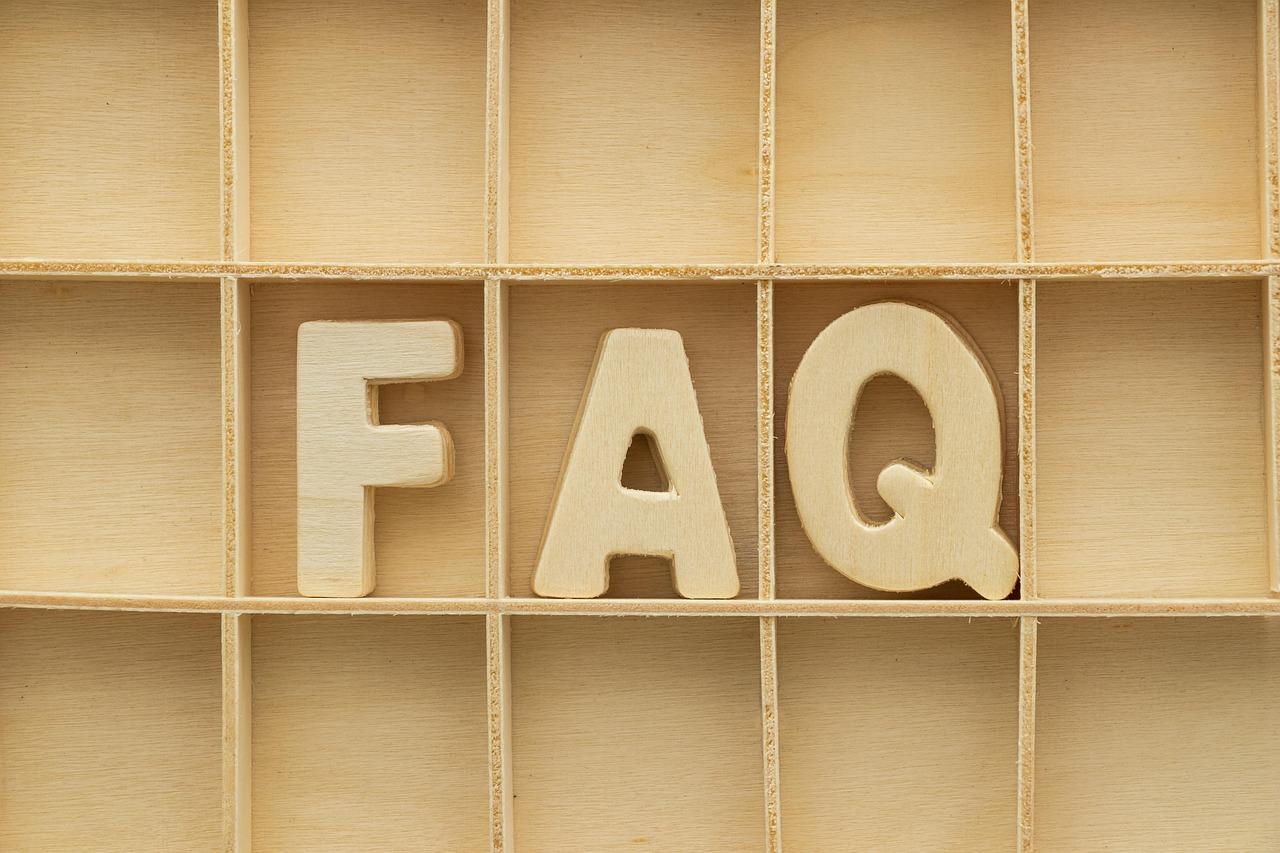
Support and Resources: Where Can You Find Help?
When you’re navigating the comparison between Shopify and Etsy, having access to the right support and resources can make all the difference. Both platforms provide various avenues for assistance, ensuring that you have the tools you need to succeed in your e-commerce journey.
Online Help Centers
Each platform boasts comprehensive help centers packed with articles, tutorials, and FAQs. These resources can guide you through common issues and help you understand the intricacies of each platform:
- Shopify Help Center: Offers in-depth articles covering everything from setup to advanced features.
- Etsy Help Center: Features a user-friendly interface with guides tailored for new sellers.
Community Forums
Engaging with other sellers can provide insights and tips that you might not find in official documentation. Both platforms have vibrant community forums:
- Shopify Community: A platform where users can ask questions and share experiences on everything from marketing to troubleshooting.
- Etsy Community: A supportive space for creative sellers to discuss strategies, share success stories, and offer advice.
Customer Support
Having responsive customer service is crucial for resolving urgent issues. Both Shopify and Etsy offer different support options:
| Platform | Support Options | Availability |
|---|---|---|
| Shopify | Email, Chat, Phone | 24/7 |
| Etsy | Email, Help Center | Weekdays |
Online Courses and Webinars
Consider investing time in online courses or webinars that provide deeper insights into e-commerce best practices. Both platforms often host sessions that can enhance your knowledge and skills:
- Shopify Academy: Offers free courses on everything from setting up your store to mastering digital marketing.
- Etsy Seller Handbook: Contains valuable articles and tips specifically crafted for Etsy sellers.
Social Media Groups
Joining social media groups related to Shopify and Etsy can connect you with like-minded individuals who are also on their e-commerce journey. These groups can be a source of motivation and inspiration.
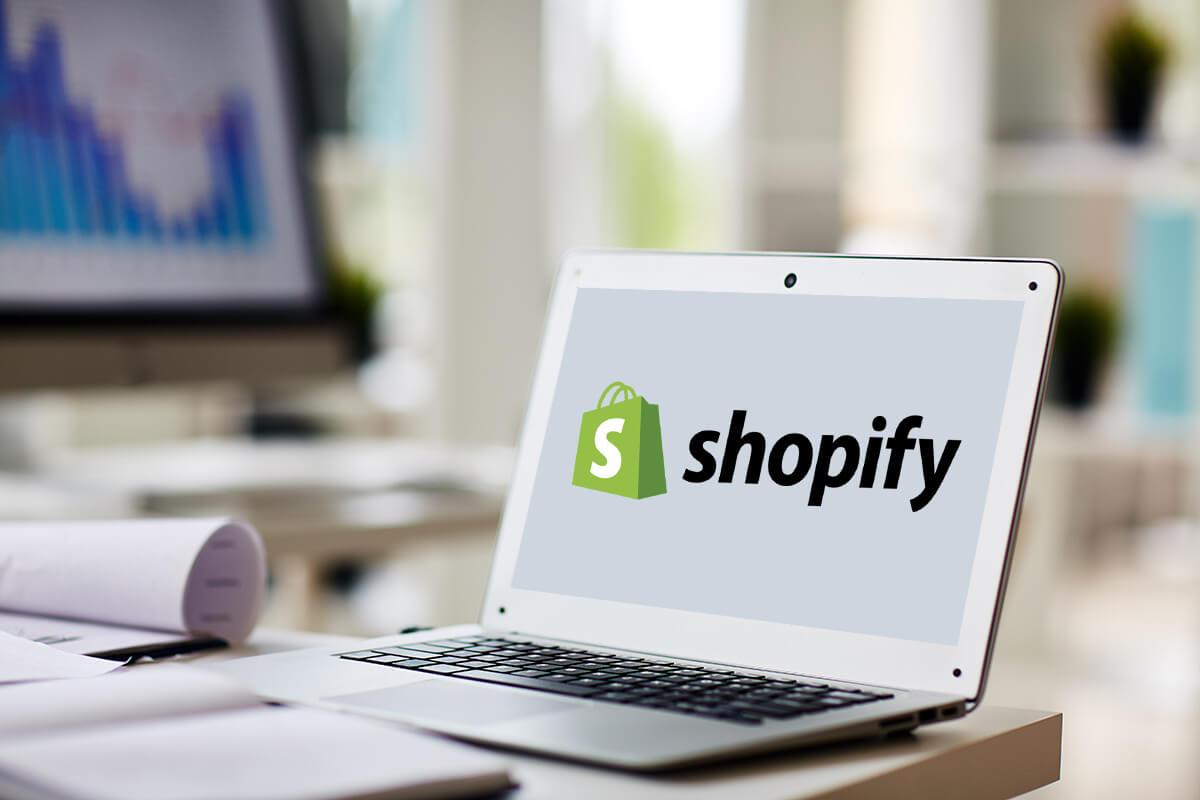
Success Stories: Entrepreneurs Thriving on Shopify
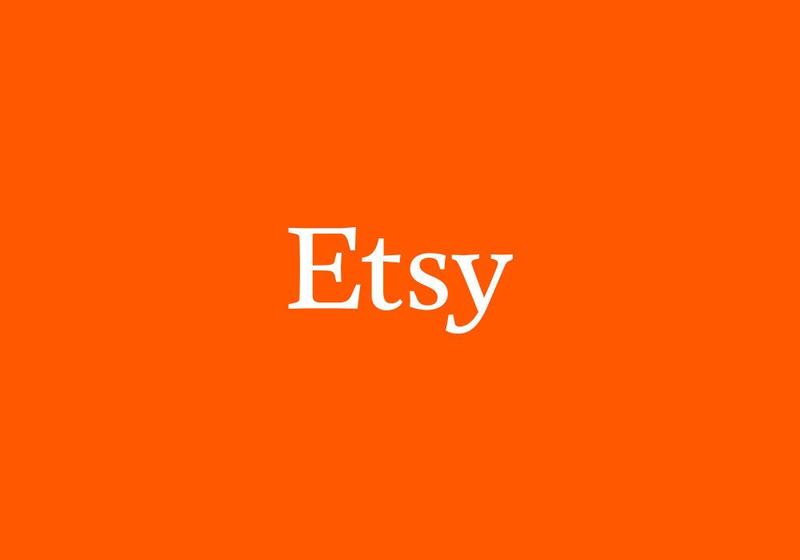
Etsy’s Handmade Focus: A Double-Edged Sword
Etsy’s commitment to handmade and vintage items creates a unique marketplace that appeals to both sellers and buyers. For artisans and creators, this focus can be a double-edged sword, offering unparalleled opportunities while also presenting certain challenges.
On one hand, Etsy’s dedicated platform allows sellers to connect with a niche audience that values craftsmanship and originality. This dedicated customer base is often willing to pay a premium for items that are unique, personalized, or handmade. Sellers can benefit from:
- Strong Brand Identity: Artisans can build their own brand around the handmade ethos, establishing themselves as distinct creators in a crowded market.
- Community Support: Etsy fosters a community of like-minded individuals, providing networking opportunities and support that can be invaluable for new businesses.
- Marketplace Traffic: Etsy’s established reputation attracts millions of potential buyers, driving traffic directly to sellers without the need for extensive marketing.
However, the very characteristics that make Etsy appealing can also limit its sellers. The platform is flooded with shops, which means that standing out requires not only exceptional product quality but also savvy marketing strategies. Some notable challenges include:
- High Competition: With countless sellers offering similar products, it can be difficult for new shops to gain visibility and traction.
- Fee Structure: Etsy’s fees can accumulate quickly, especially for newer sellers unfamiliar with the intricacies of pricing their products accurately.
- Policy Restrictions: The guidelines around what constitutes “handmade” can be stringent, limiting the types of products a seller can offer.
Despite these challenges, many sellers find that the benefits of Etsy’s handmade focus far outweigh the drawbacks. By leveraging creative branding, optimizing listings for search, and engaging with the community, sellers can navigate the competitive landscape effectively.
Ultimately, the decision to sell on Etsy should align with one’s goals as a creator. If the passion for handmade goods and connecting with a discerning audience resonates, Etsy can serve as a powerful platform for success.
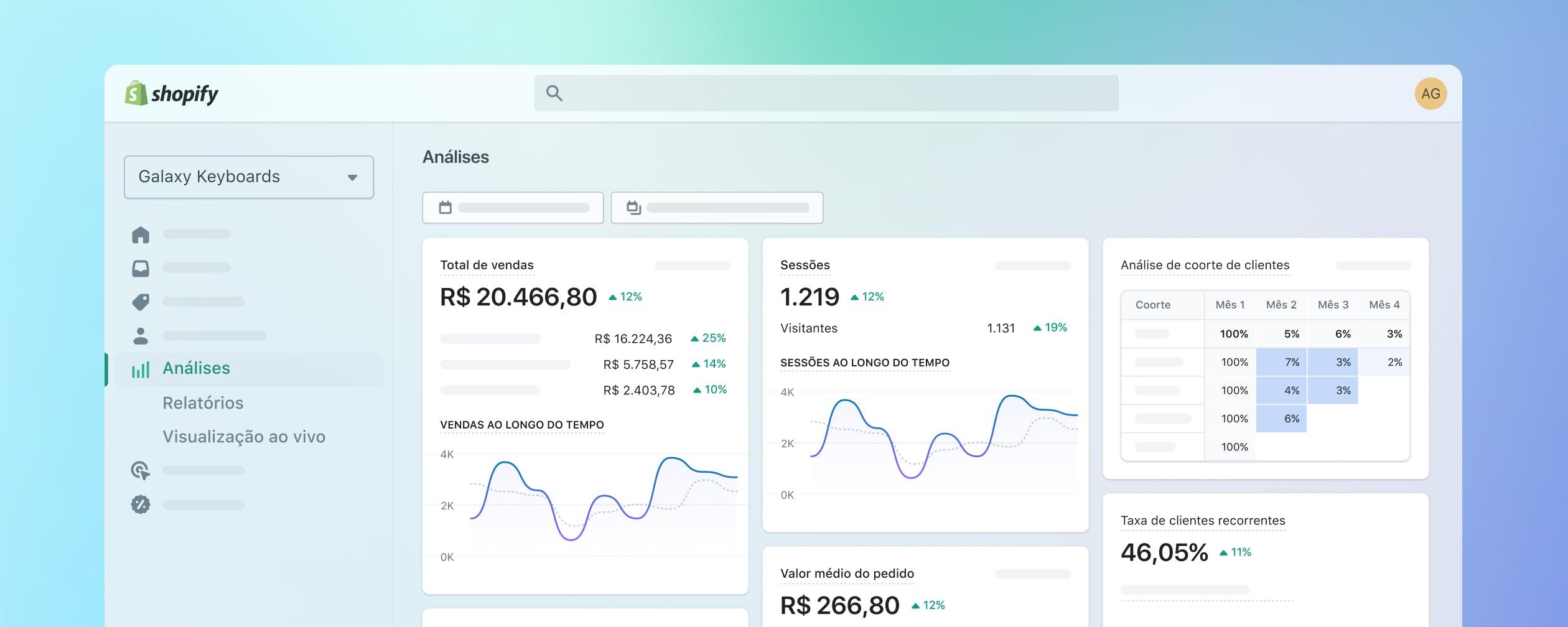
Making the Right Choice: Factors to Consider
When deciding between Shopify and Etsy for your online store, several critical factors can shape your choice. Each platform caters to different business models and goals, so it’s essential to align your selection with your vision and requirements.
Target Audience: Understanding your ideal customer is crucial. Shopify allows for a more customized shopping experience and can cater to a broader audience, while Etsy is known for its niche market of handmade and vintage items. Consider where your products fit best:
- Do you aim to reach a large, diverse customer base?
- Are you selling unique, handcrafted goods that resonate with a specific community?
Branding Opportunities: Your brand image plays a significant role in your online success. Shopify offers extensive customization options, allowing you to create a unique storefront that reflects your brand identity. Conversely, Etsy limits some customization to maintain a consistent shopping experience. Evaluate how important brand differentiation is for your business:
- Do you want a stand-out design to attract customers?
- Is brand consistency more important than individual aesthetics?
Fees and Costs: Financial considerations should never be overlooked. Both platforms have their pricing structures, which can impact your profit margins. Shopify has a monthly subscription fee plus transaction fees, while Etsy charges listing fees and takes a percentage of sales. Here’s a quick comparison:
| Platform | Monthly Fee | Transaction Fee | Listing Fee |
|---|---|---|---|
| Shopify | $29+ | 2.9% + 30¢ | N/A |
| Etsy | N/A | 5% on sales | $0.20 per item |
Ease of Use: The user experience on each platform can significantly affect your operations. Shopify is designed for ease of use, with intuitive navigation and comprehensive support. On the other hand, Etsy requires familiarity with its listing process and marketplace norms. Consider your technical proficiency and how it might impact your ability to manage your store:
- Are you comfortable with website design and management?
- Would you prefer a straightforward setup with fewer customization options?
Scalability: As your business grows, your platform should grow with you. Shopify is built for scalability, making it suitable for larger operations or those planning to expand. Etsy, while great for small businesses, may pose limitations as sales ramp up. Reflect on your long-term goals:
- Do you foresee rapid growth in your sales and product range?
- Are you looking for a platform that can easily accommodate your evolving needs?
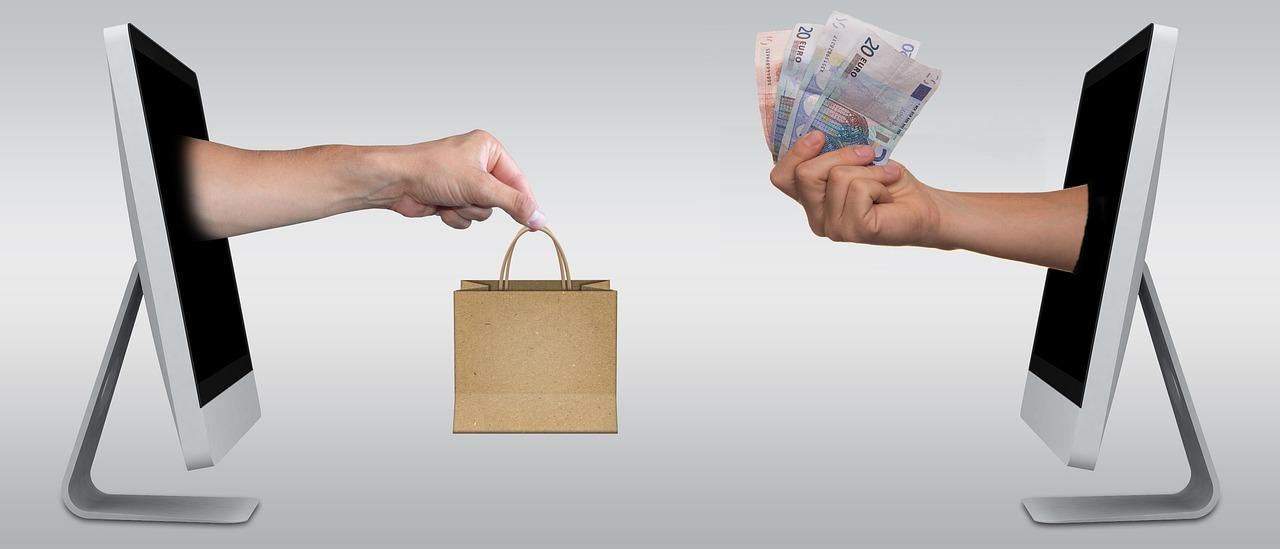
Final Thoughts: Empowering Your E-commerce Journey
As you embark on your e-commerce journey, understanding the strengths and weaknesses of different platforms is crucial to your success. Both Shopify and Etsy offer unique advantages that can empower your business, but the best choice ultimately depends on your specific needs and goals.
Consider the following factors when making your decision:
- Branding Opportunities: Shopify provides a more customizable storefront, allowing you to build a unique brand identity, whereas Etsy caters to a marketplace vibe, which can limit individual branding.
- Product Range: If you’re selling handmade or vintage goods, Etsy is tailored for you. On the other hand, Shopify is ideal for a broader range of products, including digital goods and dropshipping.
- Fees and Costs: Evaluate the fee structures carefully. Shopify charges a monthly subscription plus transaction fees, while Etsy has listing fees and a percentage of sales, which can add up depending on your sales volume.
- Marketing Tools: Shopify excels with its built-in marketing features and integrations, empowering you to reach your audience effectively. Etsy offers some tools, but they are not as extensive as Shopify’s.
Analyzing these elements will help you align your objectives with the right platform. For instance, if your priority is to create a distinct brand that stands out, Shopify may be the ideal fit. Conversely, if your focus is on selling unique, handcrafted items without building a full-fledged website, Etsy might be the way to go.
Ultimately, the best platform for your e-commerce journey is one that aligns with your vision, goals, and the type of products you wish to sell. Take the time to explore each platform’s features, test them out with trial periods, and immerse yourself in their communities. This hands-on approach will give you insights that no article can provide.
To further guide your decision-making, here’s a quick comparison table to visualize the differences:
| Feature | Shopify | Etsy |
|---|---|---|
| Customization | High | Low |
| Fees Structure | Subscription + Transaction Fees | Listing + Transaction Fees |
| Target Audience | Variety of Shoppers | Craft Lovers |
| Marketing Tools | Extensive | Basic |
your e-commerce journey is a unique adventure filled with opportunities. Whichever platform you choose, remember that success is built on continuous learning and adapting to the evolving digital marketplace. Embrace the process, stay committed, and watch your business flourish.
Frequently Asked Questions (FAQ)
Q&A: Shopify vs Etsy – Which Platform is Best?
Q: What are the main differences between Shopify and Etsy?
A: Shopify and Etsy cater to different types of sellers and business needs. Shopify is a comprehensive e-commerce platform that allows you to create a fully customizable online store. It’s ideal for entrepreneurs looking to build a brand, manage inventory, and integrate various sales channels. On the other hand, Etsy is a marketplace specifically for handmade, vintage, and craft supply items, providing an existing audience but with limited customization. If you envision a unique brand identity and control over your store, Shopify is your canvas, while Etsy is a community for artisans looking to connect with buyers.
Q: Why should I choose Shopify over Etsy?
A: If you dream of scaling your business and want the freedom to design your customer experience, Shopify is the way to go! With its robust features, including customizable templates, powerful analytics, and seamless integrations with various apps, Shopify empowers you to create a professional online presence. Imagine having the ability to run promotions, optimize SEO, and manage your entire inventory—all in one place! Plus, Shopify’s scalable nature means you can grow your business without limitations, making it an inspiring choice for ambitious entrepreneurs.
Q: What are the advantages of using Etsy?
A: Etsy is a fantastic platform for creative souls who want to tap into a built-in audience passionate about unique and handmade products. It’s a marketplace designed to celebrate creativity, which can give your products instant visibility among those who cherish artisanal goods. With Etsy, you can easily connect with like-minded creators and buyers, making it a supportive community. If your goal is to share your craft and reach customers who appreciate your artistry, Etsy can be the perfect launching pad for your creative journey.
Q: Which platform is better for making sales quickly?
A: If you’re focused on making quick sales, Etsy may have the edge due to its existing customer base actively searching for unique products. It’s easier to get noticed without having to invest heavily in marketing. However, if you leverage Shopify’s tools effectively—like targeted ads and SEO strategies—you can also drive significant sales. The key is understanding your audience and developing a marketing strategy that resonates with them. Remember, whether you choose Etsy or Shopify, success comes down to how passionately you connect with your customers!
Q: Can I use both platforms effectively?
A: Absolutely! Many sellers find success by utilizing both Shopify and Etsy to maximize their reach. With Shopify, you can build a strong brand and direct traffic to your own website, while Etsy can serve as a supplementary channel to attract a niche audience. By managing both platforms, you can diversify your sales channels, tap into different customer segments, and ultimately inspire more people with your creativity. This approach can amplify your reach and provide ample opportunities for growth!
Q: What should I consider when deciding between Shopify and Etsy?
A: Reflect on your long-term goals, the type of products you sell, and how much control you want over your brand. Are you looking to create a personalized shopping experience or simply connect with buyers? Consider your marketing strategies, potential costs, and the level of customization you desire. Your vision should guide your decision. Remember, the right choice is the one that aligns with your passion and entrepreneurial spirit, allowing you to thrive and inspire others with your creations!
whether you choose Shopify or Etsy, each platform offers unique advantages. The best choice depends on your vision, goals, and the kind of experience you wish to provide for your customers. Embrace your entrepreneurial spirit and let your passion shine—your creative journey is just beginning!
In Conclusion
choosing between Shopify and Etsy isn’t just a decision about where to sell; it’s about how you envision your entrepreneurial journey. Both platforms offer unique advantages that cater to different types of creators and businesses. If you thrive on customization, want to build a unique brand identity, and are ready to invest time in growth, Shopify could be your canvas. On the other hand, if your strength lies in connecting with a community of buyers who appreciate handmade and vintage goods, Etsy might be your perfect marketplace.
Ultimately, the best platform for you hinges on your goals, your product, and your personal style. So take a moment to reflect: What kind of experience do you want for yourself and your customers? Embrace this opportunity to choose the path that resonates with your vision. As you embark on this exciting venture, remember that every great seller started with a single step—so take that leap, harness the power of your creativity, and let your passion shine through, no matter which platform you choose. Your journey awaits, and the world is ready to see what you have to offer!





